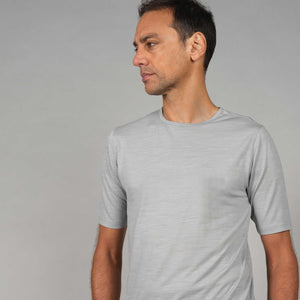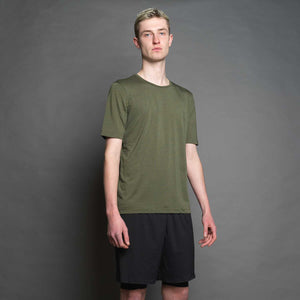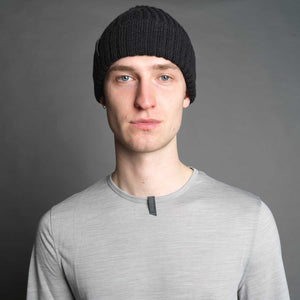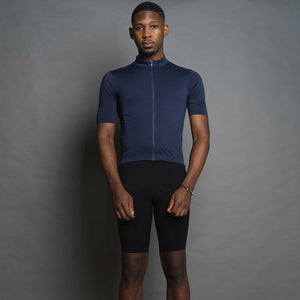Whether the momentary explosion of a clean and jerk, or a multi-day self-supported ultra-endurance run – there isn’t a physical endeavour that doesn’t involve a substantial exertion of the mind. For a team of rowers crossing the Atlantic, the mental challenge is truly colossal in scale. To put it in perspective: more people have travelled to space than have rowed across the Atlantic.
‘The end isn't going to be in sight for a really long time,’ says Rauri Hadlington, one of the rowers from On the Shoulders of Giants – a four-man team in this year's Talisker Whisky Atlantic Challenge. ‘We're preparing for a 40-day crossing, you know, irrespective of what the conditions are, so at the mid point we’ll be around 20 days from either continent, which will be daunting,’ says Rauri.

The OSOG team is rowing in aid of Motor Neuron Disease and adults with learning disabilities. They will be setting off from La Gomera on 12th December, and will be supported by ashmei along the way.
The team are all friends, but Covid has also reduced the amount of time they’ve been able to spend together on the water to prepare for the close proximity. Not to mention that as an NHS physiotherapist, Rauri has also had his preparation compressed, ‘My work changed quite dramatically with COVID – I had to work harder, longer shifts and haven’t had the stability to train, and of course gyms have been closed.’
All that said, the team has worked hard with what resources they’ve had and are in great physical form for the challenge. But while the distance between continents is set in stone, the mental challenge is unknown.
‘There's going to be a huge psychological element to the challenge,’ says Rauri. ‘Much like how we don’t know how our bodies will respond to the challenge of rowing for weeks on end, there’s a big unknown about how you're going to respond to things psychologically as well. It’s such an unusual experience to be isolated that long.’’
That’s not to suggest the team haven’t been doing what they can to prepare – the OSOG team has been training their minds as well as bodies.

Framing the Challenge
‘We've spent quite a long time preparing for it,’ says Rauri. ‘We've had a lot of conversations, both internally and we've worked with some sports psychologists. One way of dealing with it is to think about the idea that you choose to enjoy it.’
The technique, called cognitive reframing, is commonly used amongst world-class athletes. It essentially requires someone to remove anxiety or negative mental thoughts by understanding the challenge in a different way. It may sound abstract, but can be an essential coping mechanism. ‘You need to reframe what you've done, and what you’re doing. You reframe the way that you feel about being part of it – rather than seeing it as a challenge you see it as an incredible opportunity,’ says Rauri.
‘Psychologically, what’s important is an acceptance that the challenge is something that you can choose to turn your talents to and sort of immerse yourself in, rather than something that’s punishing,’ he adds. ‘For me that’s important as it’s something that I’ve wanted to do for the better part of five or six years.’

Another main mental challenge for the OSOG team will be a logistical one – choosing their route across the Ocean.
‘There's a bit of a split in the field as to whether you use a route that stays further North to minimise the amount of the distance that you actually row,’ Rauri explains. ‘Alternatively you can row further south to pick up better conditions, knowing that you’ll travel further but you can travel faster. It’s the type of decision you have to make based on conditions on the day and then live with for weeks of rowing even if it ends up being the wrong one.’

It could prove a tough mistake to come to terms with, especially when only ever managing two hours of sleep at a time, with weeks of rowing ahead of them.
So while hands will be torn by oar handles, quads strained by weeks of exertion, and a whole body being pushed to the maximum while being deprived of rest, the mind may be the deciding factor to OSOG’s success.
We’ll continue to follow the OSOG team as they progress across the Atlantic. If you’d like to support OSOG’s MND and adults with learning disabilities charity, please click here.
READ MORE: Crossing an Ocean with ashmei




